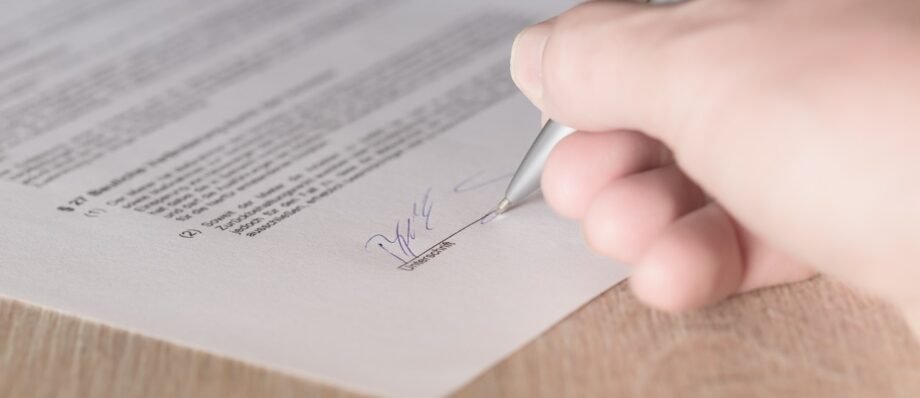Understanding Your Rights as a Florida Tenant
Renting a home should feel secure and straightforward, but many tenants in Florida find themselves unsure of their rights. What happens if your landlord refuses to fix a leaking roof? Can they evict you without notice? Understanding your rights is crucial to protecting yourself in any rental situation.
Whether you’re a new renter or a long-time tenant, this guide will walk you through key protections under Florida law, covering everything from security deposits to eviction rules.
1. Security Deposits: How Much and When Do You Get It Back?
Security deposits are often a major concern for renters. Florida law (Fla. Stat. § 83.49) sets clear rules on how landlords must handle them:
- No cap on deposit amounts – Florida doesn’t limit how much a landlord can charge for a security deposit.
- Proper storage required – Landlords must keep your deposit in a separate account (interest-bearing or non-interest-bearing) or post a surety bond.
- Timely return – Landlords have 15 days to return the full deposit if there are no deductions.
- Notice of deductions – If a landlord withholds any portion for damages, they must provide written notice within 30 days. Tenants then have 15 days to dispute the claim.
Pro Tip: Always take photos when moving in and out to protect yourself against unfair deductions.
2. Repairs & Maintenance: What Is Your Landlord Responsible For?
A rental property should be safe and habitable. Under Florida law, landlords must keep rentals in livable condition by maintaining essential services such as:
- Plumbing, electricity, heating, and running water
- Structural integrity (roof, walls, windows, doors)
- Extermination of pests if stated in the lease
- Functioning locks and security features
If your landlord fails to make necessary repairs, you have the right to send a written notice giving them seven days to fix the issue before you withhold rent or terminate the lease. However, tenants cannot withhold rent without following proper legal procedures.
What If Repairs Are Ignored? If the landlord refuses to fix the problem, you can:
- Report code violations to your local housing authority.
- Pay for repairs yourself and deduct the cost from rent (only if allowed in the lease).
- Terminate the lease if the issue makes the property unlivable.
3. Evictions: When Can a Landlord Remove You?
Eviction is one of the biggest fears for renters, but landlords cannot just kick you out overnight. Florida has strict eviction laws that landlords must follow:
- Non-payment of rent – Landlords must give a 3-day notice before filing for eviction.
- Lease violations – If you break lease terms (like having unauthorized pets), you get 7 days to fix the issue or leave.
- Month-to-month leases – Landlords must give 15 days’ notice before ending a month-to-month agreement.
- Retaliatory evictions are illegal – A landlord cannot evict you for reporting unsafe conditions or filing a complaint.
If you receive an eviction notice, do not ignore it—respond in court within five days or risk automatic judgment against you.
4. Rent Increases & Lease Agreements: What’s Allowed?
Unlike some states, Florida does not have rent control laws. This means:
- Landlords can raise rent without limits, but only after your lease ends.
- For month-to-month tenants, rent increases require 15 days’ notice.
- For yearly leases, increases can only happen at renewal unless stated otherwise in the contract.
Always read your lease carefully and negotiate terms before signing.
5. Privacy Rights: Can Your Landlord Enter Without Permission?
Florida law protects your right to privacy. A landlord must give at least 12 hours’ notice before entering for inspections or repairs, except in emergencies.
If your landlord repeatedly enters without notice, you may have grounds for legal action.
Frequently Asked Questions (FAQ)
1. Can my landlord refuse to return my deposit without explanation?
No. Florida law requires landlords to provide written notice of deductions within 30 days.
2. Can I break my lease without penalty?
Only under certain conditions, such as unlivable conditions or military deployment. Otherwise, breaking a lease can result in financial penalties.
3. Can my landlord raise my rent anytime?
Not during a fixed lease term, but they can at renewal or with proper notice for month-to-month renters.
4. What if my landlord won’t make repairs?
You can notify them in writing and give them seven days to fix the issue. If ignored, you may have legal options.
5. Can I be evicted for reporting safety issues?
No. Retaliatory evictions are illegal under Florida law.
Final Thoughts: Protect Your Rights as a Florida Tenant
Knowing your rights as a tenant in Florida can prevent costly mistakes and unfair treatment. If you ever feel unsure, consider seeking legal help from tenant advocacy groups or legal aid services. Staying informed is your best defense against landlord disputes.
For more official resources, visit:
- Florida Department of Agriculture and Consumer Services
- Florida Bar Tenant Rights Guide
- U.S. Department of Housing and Urban Development (HUD)
By understanding your rights, you can rent with confidence and peace of mind!
Get the Compensation You Deserve After Your Accident
If you’ve been injured in a car crash that wasn’t your fault, don’t settle for silence or confusion. Lawayer.com connects you with› experienced attorneys who can fight for your rights and help you recover what you’re owed. Time matters—take the first step now



